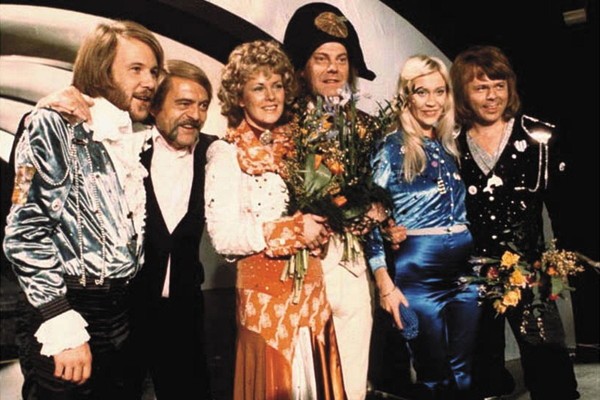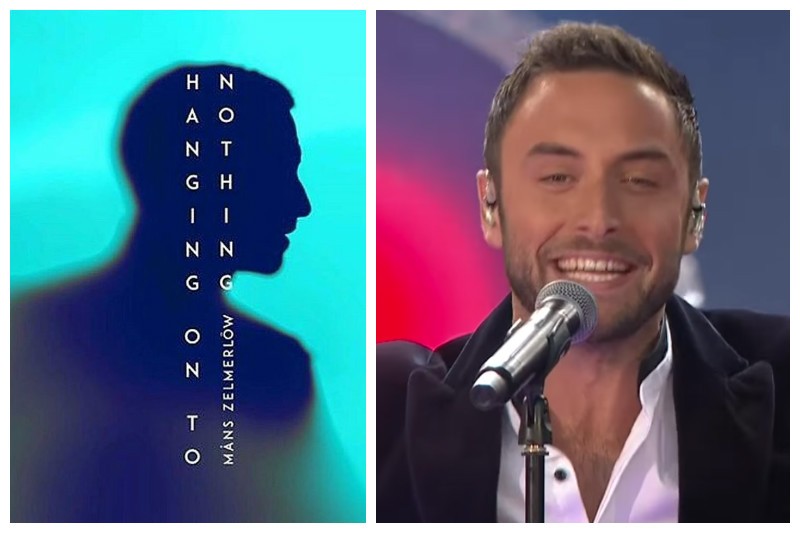With all the drama surrounding the selection of the host city for Eurovision 2017, there’s been talk of the possibility that the hosting might go to a different country. That’s very unlikely, and it isn’t something we’ve seen in many years. But it was reasonably common in the 1960s and 1970s. Let’s take a look at the countries who stepped in to host when the winner declined.
1957: Frankfurt, Germany
Previous year’s winner: Switzerland
Switzerland hosted the inaugural Eurovision Song Contest in 1956, but even though Lys Assia gave the landlocked host country its first victory, Switzerland didn’t get to host the competition the following year. That honour instead went to Germany. This wasn’t, as rumour suggested, because Germany placed second — there were no placings other than first that year. In the early years of Eurovision, it was intended that all participating countries would have an opportunity to host, so Germany was just taking its turn.
1960: London, United Kingdom
Previous year’s winner: The Netherlands
In 1959, following its 1957 win, the Netherlands became the first county to have won Eurovision twice. The country’s broadcaster didn’t fancy hosting the competition again so soon after their first win, so the honour passed to the United Kingdom, who had placed second. The UK’s hosting marked the debut of Katie Boyle, who went on to present Eurovision a record four times.
https://youtu.be/dNGSsDAmr1Y
1963: London, United Kingdom
Previous year’s winner: France
While Isabelle Aubret had secured France its third victory with “Un premier amour” in 1962, the French broadcaster was unwilling to host Eurovision for the third time in five years due to financial restrictions. The hosting didn’t go to the runner-up (Monaco), but instead the BBC again stepped in and Eurovision went to England for the second time – despite the UK having yet to win itself. Katie Boyle again presented the show.
1972: Edinburgh, Scotland, United Kingdom
Previous year’s winner: Monaco
When the tiny principality of Monaco won in 1971, it seemed unlikely that they’d be able to host — and Prince Ranier confirmed this was the case. The micro state simply didn’t have the facilities. The hosting duties again went to the UK, but this time the BBC took things north to Scotland, hosting in Edinburgh. This marks the first and only time the UK have hosted Eurovision outside of England.
1974: Brighton, United Kingdom
Previous year’s winner: Luxembourg
Like most countries, Luxembourg didn’t normally have an issue with hosting Eurovision, having successfully done so in 1962, 1966 and 1973. But they had the enviable problem of having won the competition two years in a row — the Grand Duchy just didn’t fancy hosting again so soon. The hosting duties went to the ever reliable UK, with Katie Boyle presenting for a fourth time. The seaside town of Brighton was the setting for one of the most memorable Eurovisions, when ABBA won with “Waterloo”.
1980: The Hague, The Netherlands
Previous year’s winner: Israel
Israel were also blessed and cursed with winning twice in a row. The national broadcaster couldn’t fund another Eurovision, the government wouldn’t help out, so Israel were forced to decline. The hosting was offered to 1979’s runner-up Spain and to stalwart stand-ins the UK, but both declined. It eventually went to the Netherlands, who produced a modest show. But in even worse luck for Israel, Eurovision 1980 coincided with Israel’s important Day of Remembrance holiday, so they were forced to withdraw entirely. But it was good luck for Johnny Logan, who scored the first of his three wins.
https://youtu.be/vccwzuttIQY
Since then…
Since 1980, all winning countries have gone on to host Eurovision the follow year. This even includes Ireland’s remarkable run of luck in the mid 1990s, when they won and hosted the song contest four times in five years.
While there are rumours that various countries deliberately enter bad songs in order to not be burdened with the expense of winning, there’s no reason why hosting Eurovision should be a loss-making exercise.
The focus might go on countries such as Azerbaijan and Denmark who spend big and build brand-new venues, but when countries use existing facilities and have a modest budget, hosting Eurovision proves to not be a financial burden.
Modern Eurovision provides host broadcasters with substantial income from public ticket sales from the arena shows, something that was not an option in the early years. And Sweden has recently shown that an impressive show can be achieved on a relatively tight budget.











Definitely Ukraine shouldn’t have won….
Pretty harsh to stage the 1980 contest on Israel’s Memorial Day after their victory…
If it ends up in other country
Australia, 2nd, would not hold the event because it is outside Europe
Russia, 3rd, definitely not because of the “song”
so it would be either Germany or UK
but, it would be very awkward for these two country because they place almost the last place.
Bulgaria?
Love the article, but why was the 1980 Eurovision a “modest”. Didn’t seem that different to me…
yvw Robyn 🙂
Interesting article, thanks Robyn 🙂
Can someone at Wiwibloggs please write an article about the Eurovision budgets over the years? 2016 show has the lowest budget (hard to believe it’s even lower than the 2013 show) over the last five years yet personally it was the most memorable. How did they spend that money? That would be an interesting read and surely a lot of lessons to be learnt.
Katie Boyle presented Eurovision 4 times and was Hosting the year after Sandie Shaw (1967) won, 1968 – London’s Royal Albert Hall.
So hosted 3 times as stand in host country and once as reiging winning country.